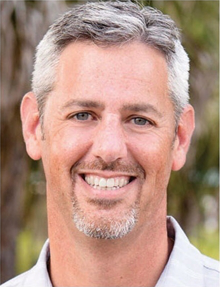
Paul Allen
| Instructor II Dept. of Computing & Software Eng. U.A. Whitaker College of Engineering Florida Gulf Coast University |
|
| Holmes Hall, Room 411 | |
| pallen@fgcu.edu | |
| (239) 745-4715 |
Skills
Programming - C/C++, AVR Assembly, Python, Java
Database Technology - RDBMS, SQL, PL/SQL, ETL
Computer Architecture
Embedded Technologies
Philosophy of Learning
My personal learning philosophy is deeply influenced by cognitive constructivism and sociocultural constructivism. These theories shape my understanding of how individuals learn, construct meaning, and engage in the learning process within social contexts. I believe in an inquiry-based approach where students construct their own understanding of concepts and are challenged to reshape their schemas when faced with new information.
Cognitive constructivism (Piaget) focuses on individual learning, where students experience disequilibrium when their existing schemas are challenged. Given time, each student will construct new knowledge as they bring themselves back into equilibrium at their own pace. On the other hand, sociocultural constructivism (Vygotsky) emphasizes group interactions and collaboration. Students learn best when they are first introduced to new knowledge through guided instruction and then given opportunities to practice and engage with peers in a safe and diverse environment. (Powell & Kalina, 2009)
Personally, I find that a combination of both cognitive and sociocultural constructivism is most effective for student learning. By incorporating individual and group work, I aim to provide students with varied learning experiences that cater to their diverse needs and preferences. This approach allows students to construct knowledge independently while also benefiting from collaborative learning experiences. Overall, my goal is to create a dynamic learning environment where students can actively engage with content and interact with their peers to deepen their understanding.
Powell, K. C., & Kalina, C. J. (2009). Cognitive and Social Constructivism: Developing Tools for an Effective Classroom. Education, 130(2), 241-250.
Teaching Philosophy
My teaching philosophy is focused on fostering collaborative minds through a cognitive sociocultural constructivism approach. I recognize that students learn about their world by constructing new information from their existing knowledge and assumptions. I strongly believe that learners benefit from an active learning environment focused on critical thinking and collaboration with other students.
I promote active learning strategies in my classes to engage students in meaningful activities to construct their own knowledge. Students are encouraged to take ownership of their learning process through activities such as problem-solving, group discussions, and hands-on projects. I create a collaborative and inclusive classroom environment where students are encouraged to work together, share perspectives, and learn from one another's diverse experiences. Through collaborative projects, group discussions, and peer feedback, students develop important interpersonal skills while enriching their understanding of the subject matter.
Critical thinking is a core component of my teaching philosophy. I challenge students to question, analyze, and evaluate, information rather than simply memorizing facts. By posing open-ended questions and encouraging students to explore different viewpoints, I foster intellectual curiosity and empower students to think critically about the world around them.
I employ scaffolding techniques to support students as they tackle challenging concepts. By providing appropriate guidance and support, I help students build on their knowledge by gradually increasing the complexity of tasks as their understanding deepens. This approach fosters independence and self-directed learning while ensuring that students feel supported throughout the process.
Assessment is used not only to evaluate students' understanding but also to provide feedback and support their ongoing learning process. I employ a variety of assessment methods, including formative assessments, peer evaluations, and self-reflections, to gauge student progress and identify areas for improvement. Assessment tasks are designed to align with learning objectives and encourage deep understanding rather than rote memorization.
As a faculty member, I am committed to continuous reflection and improvement. I regularly reflect on my teaching practices, seeking feedback from students and colleagues, and adjusting my methods as needed to better support student learning. I strive to create a dynamic and responsive learning environment that meets the evolving needs of my students.
By integrating cognitive constructivism with a focus on building a sociocultural environment, this teaching philosophy aims to empower students as active participants in their own learning while fostering collaboration, critical thinking, and lifelong learning skills.
Work Experience
Instructor II / Florida Gulf Coast University
Jan 2021 - Current
Teach software engineering programming I & II, computer architecture with Assembly language, data engineering, digital systems and other SE related courses.
Adjunct Instructor / Florida Gulf Coast University
Aug 2015 - Dec 2020
Teach programming and computer architecture courses in the U.A. Whitaker College of Engineering and Lugert College of Business.
Assistant Director / Florida SouthWestern State College
Sep 2016 - Jan 2021
Manage application development projects and staff in support of the college's enterprise database system (Banner/Oracle).
Assistant Director / Florida Gulf Coast University
Jan 2003 - Sep 2016
Manage application development projects and staff in support of the university's enterprise database system (Banner/Oracle).
Application Developer / Lee County Tax Collector
Jul 2001 - Dec 2002
Perform application development on the financial system application (Foxpro/MS SQL Server).
Application Developer / Fischer International Systems Corporation
Jun 1998 - Jun 2001
Perform project based application development in C/C++ and Java on Windows desktop, web-based, and X500 Directory applications.
Chief Warrant Officer III (Ret)/ Florida Army National Guard
Dec 1987 - Aug 2010
Medical evacuation helicopter pilot in the UH-60 Blackhawk, with prior experience in flying utility, scout and attack aircraft, helicopter maintenance, military police. One combat tour in Iraq (2006-2007).
Education
Florida International University
Current
Doctorate in Engineering and Computing Education succeed.fiu.edu/
Florida Gulf Coast University
2014
Masters Business Administration
Florida Gulf Coast University
1998
BS Computer Information Systems